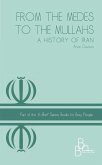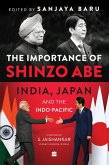The withdrawal of the United States from Afghanistan has left a lasting impact on both Afghanistan's future and on Asian geopolitics. It has also brought China into focus. This book traces the emergence of China as a key player in Afghanistan and the evolution of China's Afghan policy especially with respect to its relations with the Taliban. Beijing's dominant role in Afghanistan's future is a potentially game-changing development in Asian geopolitics, even if questions remain about the former's appetite to step in to fill the void and the limits of its ambitions.
In The Comrades and the Mullahs, Ananth Krishnan and Stanly Johny examine what Beijing's interests are and the drivers of its foreign policy, and, more specifically, how its new Silk Road project-the Belt and Road Initiative-is shaping China-Afghan relations. They look at how Afghanistan has emerged as a key point on the corridor heading west from Xinjiang, and discuss the Xinjiang factor, drawing on their travels to China's western frontiers, as well as the internal dynamics that are pushing Beijing's westward march.
Another factor is the East Turkestan Islamic Movement and the terror groups that are leading to an increasingly securitized approach to China's western regions and beyond, including possible Chinese plans to deploy special forces along the China-Afghan border areas in the Wakhan corridor and Badakhshan region.
China's Afghan engagement has also deepened its 'all-weather' alliance with Pakistan-with Beijing increasingly leaning on Islamabad, particularly in its outreach to the Taliban and other elements in Afghanistan that have long been supported by the Pakistani state-and is a perennial source of tension between Islamabad and Kabul. The authors show how this increasing closeness is alarming for India, and might have far-reaching consequences, especially in Kashmir.
In The Comrades and the Mullahs, Ananth Krishnan and Stanly Johny examine what Beijing's interests are and the drivers of its foreign policy, and, more specifically, how its new Silk Road project-the Belt and Road Initiative-is shaping China-Afghan relations. They look at how Afghanistan has emerged as a key point on the corridor heading west from Xinjiang, and discuss the Xinjiang factor, drawing on their travels to China's western frontiers, as well as the internal dynamics that are pushing Beijing's westward march.
Another factor is the East Turkestan Islamic Movement and the terror groups that are leading to an increasingly securitized approach to China's western regions and beyond, including possible Chinese plans to deploy special forces along the China-Afghan border areas in the Wakhan corridor and Badakhshan region.
China's Afghan engagement has also deepened its 'all-weather' alliance with Pakistan-with Beijing increasingly leaning on Islamabad, particularly in its outreach to the Taliban and other elements in Afghanistan that have long been supported by the Pakistani state-and is a perennial source of tension between Islamabad and Kabul. The authors show how this increasing closeness is alarming for India, and might have far-reaching consequences, especially in Kashmir.
Dieser Download kann aus rechtlichen Gründen nur mit Rechnungsadresse in A, D, L ausgeliefert werden.









